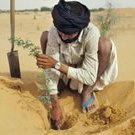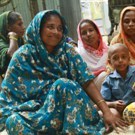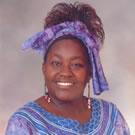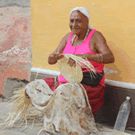December’s 32 Top Resources: Climate Change| Adaptation | Climate Finance | Winter Training | Climate Smart Agriculture
Special December Newsletter on the Best New Resources for Adaptation, Development, Sustainability and Nonprofit Programs
We have so many excellent resources come through CSDi that we periodically compile them and share them in an occasional, special newsletter.
Please note: web addresses change frequently – if one doesn’t work simply type the resource title into your browser.
1. CLIMATE CHANGE
Measuring, Reporting and Verifying NAMAs (Nationally Appropriate Mitigation Actions)
Caroline De Vit, Frauke Röser and Hanna Fekete
Ecofys
November 2013
Climate change threatens world food supply, panel warns
Justin Gillis
The New York Times News Service
November, 2013
Concentrations of warming gases break record
Matt McGrath
BBC
November, 2013
Lean Energy Solutions wins the AfriCAN Climate Award
Dinesh Tembhekar, Managing Director of Lean Energy Solutions
November, 2013
2. ADAPTATION TO CLIMATE CHANGE
Adaptation Toolkit: Guidebook for Community-Based Adaptation Practitioners
Gifty Ampomah, Tahia
ENDA
2013
The State of Adaptation Under the United Nations Framework Convention on Climate Change
United Nations Framework Convention on Climate Change
Adaptation Committee
November, 2013
Community-Based Adaptation to Climate Change. Emerging Lessons
Edited by Jonathan Ensor, Rachel Berger, Saleemul Huq
Practical Action1
December, 2013
3. DEVELOPMENT
The Charitable-Industrial Complex
Peter Buffett
The New York Times
2013
4. COLLECTIVE ACTION
Beyond the Toolkit: Experiences with Institutionalizing
GTZ
Set up a community-based organization- Learner Manual
The Development Practice Project
Community-driven development decision tools for rural development programmes
Enabling poor rural people to overcome poverty
IFAD
Decision Tools for Rural Finance
IFAD
Thematic publications: enabling poor rural people to overcome poverty
A collection of Community-driven development decision tools for rural development
IFAD
Sustaining the Commons
John M. Anderies and Marco A. Janssen
Center for the Study of Institutional Diversity at Arizona State University
Best Practices using Indigenous Knowledge
Karin Boven, Jun Morohashi
Australian Indigenous Knowledge and Libraries
Edited By Martin Nakata and Marcia Langton
University of Technology, Sydney
Mapping and Documenting Indigenous Knowledge in Climate Change Adaptation in Ghana
Benjamin A. Gyampoh and Winston A. Asante
Guidelines for Incorporating Traditional Knowledge in Environmental Impact Assessment
Mackenzie Valley Environmental Impact Review Board
The secrets of the world’s happiest cities
Charles Montgomery
The Guardian
November, 2013
5. WATER
Manuel de Formation des Comités de Gestion d’Eau Villageois
Helvetas Cameroon
People First, Water and Sanitation Later
David Drucker
WHO/IRIS
6. FORESTRY
Who Counts Most? Assessing Human Well-Being in Sustainable Forest Management
Carol J. Pierce Colfer
CIFOR
IUCN Best Practice Guidelines on Governance of Protected Areas
Grazia Borrini-Feyerabend, Nigel Dudley, Tilman Jaeger, Barbara Lassen, Neema Pathak Broome, Adrian Phillips and Trevor Sandwith
IUCN, the ICCA Consortium, the Deutsche Gesellschaft für Internationale Zusammenarbeit (GIZ) on behalf of the German Ministry for Economic Cooperation and Development (BMZ) and the CBD Secretariat
November, 2013
7. CLIMATE SMART AGRICULTURE
Climate-Smart Agriculture? A review of current practice of agroforestry and conservation agriculture in Malawi and Zambia
David Kaczan, Aslihan Arslan and Leslie Lipper
FAO
November, 2013
8. CLIMATE FINANCE
Understanding Climate Finance Readiness Needs in Southern Africa: Insights from Namibia, Tanzania and Zambia
GIZ, ODI, BMZ
November 2013
Foreign aid and sustainable forestry
Pekka E. Kauppi
UNU-WIDER Working Paper
October, 2013
| 10. ELECTIVES |
Fine Tune your Projects with this Powerful array of Elective Courses |
 |
|
11. International Workshop: Designing and Funding CBA Projects. Come Study with Us January 14.
Two Month Blended Distance & Live Training |
 |
This blended training program includes 6 days in the field.
In this training we will lead you through the development of a real project, in real time, in a real village, and leave you with the practical field tools to sustain it. Follow link for detailed syllabus.
- Conduct a participatory needs assessment with a community in your own country in preparation for the Guatemala workshop—guided by CSDi staff.
- Upon arrival at the workshop, use the needs assessment to begin the development of a complete, fundable, launchable project in this 6-day training workshop.
- Return home and launch your project with the continued guidance of your CSDi workshop leader.
|
| 12. Northern Nonprofit: Designing & Funding Nonprofit Projects in Developed Nations. |
 |
If you work with a nonprofit in a northern country working on traditional programs such as food banks, animal rescue, teen drop-in centers, homeless shelters, day care centers, community development, or environmental restoration—Diploma OL 240 for Northern Nonprofits will help you develop a sustainable, impact oriented, local project. Follow the links below to learn more.
The course will lead you through the development of a real project, in real time, and leave you with the practical tools to sustain it. For example, student projects have included efforts to help communities in Europe and North America with community development, youth employment, income generation, empowering immigrant women, the Inuit and climate change, and environmental restoration.
|
Northern Nonprofit: Designing & Funding Nonprofit Projects in Developed Nations is available in both a:
1. 100% Distance Learning Program beginning January 7.
2. A Two Month Blended Distance and Live Training program beginning January 14. |
| 13. International Development: Designing & Funding International Development Projects. |
 |
Are you working in international development in areas such as food security, health and hygiene, watershed management, agriculture, or income generation? Then this training program is for you. Follow the links below to read the syllabus and see how the course is organized.
This training program will present an ‘online field experience,’ and lead participants in the process of developing sustainable, self sufficient communities. This blended learning program will lead you through the development of a real project, in real time, in a real village.
|
We look forward to working with you in our training programs.
Sincerely,
Tim Magee, Executive Director
Would you like to subscribe to this newsletter?
The Center for Sustainable Development specializes in providing sound, evidence-based information, tools and training for humanitarian development professionals worldwide. CSDi is a 501(c)(3) nonprofit organization.








